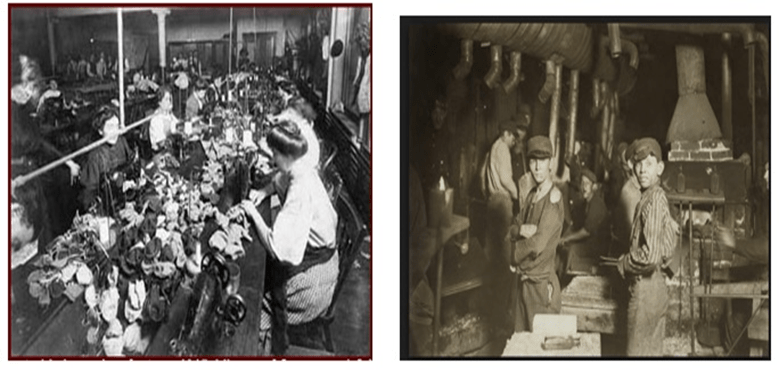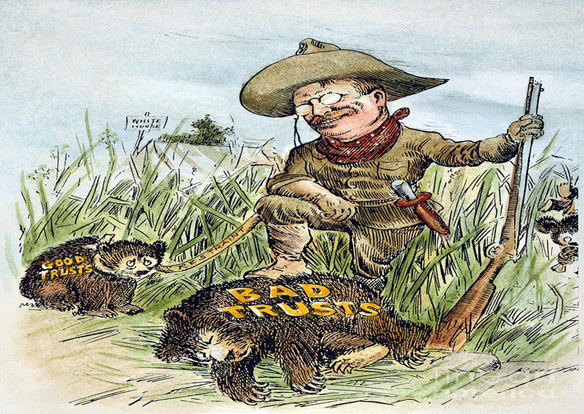Supreme court case that ultimately established “Separate but Equal”. States could require separate accommodations on trains, and in schools, for blacks and whites as long as the accommodations were equal.
Plessy v. Ferguson
One of the richest men of the era and largely responsible for the advances in steel production. He was known as a steel magnate.
Andrew Carnegie:
After the Civil War, settlers took advantage of this to move west in droves in search for gold, silver, and farmland.
Transcontinental Railroad.
A towering black intellectual, scholar and political thinker. He also believed that African Americans would benefit from education, but he believed that BTW’s strategy would perpetuate white oppression.
He advocated for political action and civil rights immediately.
W.E.B. Du Bois:
This was passed to curb the power of trusts and monopolies and maintain market competition in business. This law prohibits mergers or acquisitions whose effect may be to substantially lessen competition.
New Freedom
Led the movement for ratification of the 19th Amendment in Tennessee. Tennessee was the last state needed to ratify the 19th Amendment and give women the right to vote. This is known as the “Perfect 36”
Anne Dallas Dudley
Involuntary servitude – slavery – was abolished, unless it was the result of a sentence passed by a court of law upon conviction of a crime.
13th
What is another name for the Scopes Trial
Monkey Trial
Provided any adult citizen, who had never borne arms against the U.S. government 160 acres of surveyed government land. Claimants were required to live on and “improve” their plot by cultivating the land.
Homestead Act
An editorial cartoonist known for calling out corrupt political machines and their leaders using cartoons and satire.
Thomas Nast
Author of “How the Other Half Lives”. He provided pictures of tenement houses which exposed the poor living conditions experienced by immigrants
Jacob Riis
An editorial cartoonist known for calling out corrupt political machines and their leaders using cartoons and satire.
Thomas Nast

What do these photos depict?
Working conditions for women and children during the early 20th Century.
The Tennessee Coal Mine in Anderson County decided to replace striking miners with convicts. This decision led to the series of events known as
Cold Creek Labor Saga/Coal Creek War
He was the last vote needed for the 19th Amendment to pass in Tennessee.
Harry Burn
African American males were guaranteed the right to vote, and “race, color, or previous condition of servitude” could not be used as a reason to refuse anyone the right to vote.
15th
Underwood Tarriff
Federal Reserve Act
Clayton Anti-Turst Act
Who do you associate with the information above?
Woodrow Wilson
large, extremely successful farms, principally on the Great Plains and in the West, that emerged during the second half of the 1800s.
Bonanza farm
The mission was to “Kill the Indian” to “Save the Man” They promoted cultural assimilation.
Carlisle Indian School
Perhaps the most important industrial advancement of the era came in the production of steel. This process changed the way the U.S. produced steel and in doing so, led the country into a new industrial age.
Bessemer Process: Henry Bessemer
The strongest survive in nature and the strongest survive in the social and economic competition of a capitalistic society.
Social Darwinism

What does this political cartoon tell you about FDR's stance on Trusts?
Believed that there are both good and bad trusts. Furthermore, he believed that he bad trusts need to be broken up.
This was passed to curb the power of trusts and monopolies and maintain market competition in business.
This law prohibits mergers or acquisitions whose effect may be to substantially lessen competition.
Clayton Antitrust Act
Leader of the anti-suffragist movement in Tennessee. She believed that most women did not want to vote.
Josephine Pearson
This is the basic guarantee of civil rights for all Americans. It defined “citizenship” as anyone born or naturalized in the U.S. (this automatically granted citizenship rights to former slaves).
14th
Increasing Military power overseas
Spreading American culture, ideals, and democracy
Demand for natural resources and new markets to sell goods.
What is described above?
American Imperialism
black soldiers helped protect the nation's westward expansion by building roads and participating in significant military actions, such as the Red River War (1874-1875) and the Battle of San Juan Hill during the Spanish American War (1898). The brave men also served among the first national park rangers.
Buffalo Soldiers
Refers to a purported informal, unwritten deal that settled the disputed 1876 U.S. Presidential election, regarded as the second "Corrupt bargain", and ended congressional Reconstruction.
Compromise of 1877.
Name the two inventors that were critical to the development of skyscrapers and suspension bridges.
Carnegie/Bessemer
Through Christian reform efforts in health, labor, and education, society could be improved and the poor could make a decent living.
Social Gospel
His book “The Jungle” exposed the appalling working conditions in the meat packing industry. His description of diseased, rotten, and contaminated meat shocked the public and led to new federal food safety laws.
Upton Sinclair
The first measure passed by the U.S. Congress to prohibit trusts.
It was based on the constitutional power of Congress to regulate interstate commerce.
This act was designed to restore and maintain competition in business, but it was loosely worded and failed to define such terms as “trust.”
Sherman Antitrust Act
What did all farmers seem to have in common? Debt! Looking for solutions to this condition, farmers began to attack the nation’s monetary system.
As of 1873, Congress declared that all federal money must be backed by _________. This limited the nation’s money supply and benefited the wealthy, and is know as the ____________ __________.
Gold/Gold Standard
Congress shall have the power to lay and collect taxes on incomes.
16th
Involvement in the Spanish American war
Acquisition of Hawaii,
Introduction of the Open Door policy in China are all examples of what?
American Imperialism
born into slavery in 1847 in Williamson County, Tennessee. At age 19, he enlisted in the U.S. Army, assigned to the 38th Infantry Regiment.
He earned the Medal of Honor as a Buffalo Soldier.
George Jordan
A mass migration of African Americans (Exodusters) moving westward to Kansas was led by _____________.
Pap Singleton
Led a progressive social reform movement that provided social and educational opportunities to immigrants
Jane Addams
Educator, reformer, and the most influential black leader of his time. He urged blacks to accept discrimination for the time being and concentrate on elevating themselves through hard work and material prosperity. He believed in education in the crafts, industrial and farming skills.
Booker T. Washington
An arrangement by which stockholders in several companies transfer their shares to a single set of trustees. In exchange, the stockholders receive a certificate entitling them to a specified shar of the consolidated earnings of the jointly merged companies.
Trust
Regulates the banking industry and established a federal banking system. Designed to remove power over interest rates from the hands of private bankers
Federal Reserve Act
Booker T. Washington and W.E.B. Du Bois agreed that _________________ but disagreed about ____________.
African Americans would benefit from education.
The methods of achieving equality.
Election of Senators was granted to the people of each of the states.
17th
Who attempted to enlarge the food supply of the United States and allies, to boost food production and also promote food conservation?
Herbert Hoover.
Explain how the Homestead Act and the Transcontinental Railroad impacted the settlement of the West.
The Homestead Act, passed in 1862, allowed settlers to claim 160 acres of land for free. Another important factor was completion of the first transcontinental railroad in 1869; the railroad led to much more rapid western migration and also facilitated economic development.